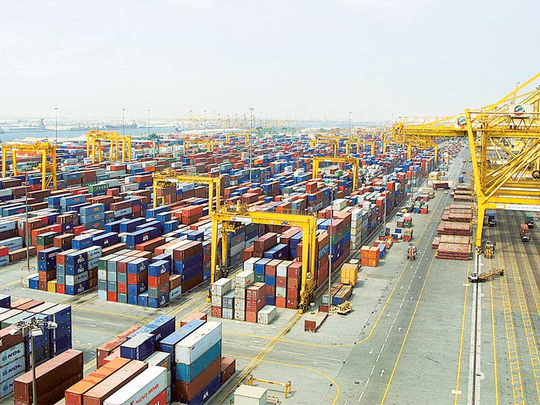
Dubai: A Dubai economic official warned on Wednesday of the ramifications a strengthening US dollar is likely to have on the emirate’s economy.
Professor Abdulzak F. Al Faris, deputy secretary general for economic affairs at the Dubai Economic Council (DEC), told Gulf News a strengthening dollar will have negative implications for loans, debt and exports.
“Because Dubai is diversified it will be affected more by the dollar than by the oil,” Al Faris said at a shipping forum in Dubai.
The DEC is involved in the Dubai government’s economic policy decision making process.
The comments come at a time when attention has been focused on global oil prices that have more than halved since June last year.
The US dollar index, which measures it against a basket of currencies, traded on Wednesday at 92.7640 with a recent high of 93.046. It traded as low as 79.5 in May last year just before oil began its decline.
The cost of servicing of Dubai’s debt will also be higher as the value of the US dollar increases, Al Faris said. Demand for UAE goods manufactured, as well as US re-exports, could slump as they will be more expensive for non-US markets. Lower oil prices will affect exports as the income of the UAE’s closest trade partners, Iran, Saudi Arabia, Qatar and Oman weakens, Al Faris said.
“The cost of borrowing will be higher because the interest rate in the dollar will be higher,” Al Faris said pointing to the early recovery of the US economy, which he said “will increase the interest rate”.
The US economy is rebounding faster than expected. It has grown by an average of 4.8 per cent in the past two quarters, its strongest performance in a decade. A healthy US economy could see the Federal Reserve increase the interest rate from its historically low rate of 0.25 per cent. While any increase to US interest rates would likely be followed in the UAE it is unlikely to have a significant impact because of its current low.
Despite the warnings, Al Faris said he did not believe the rising dollar was a “threat” to the Dubai economy, however, said that “people should be watching”.
He also said lower oil prices are likely to lead to increased productivity and the appreciating dollar to lower the costs of non-US re-exports. Global benchmark Brent crude, trading at $48.41 a barrel on Thursday, has dropped by around 57.9 per cent since June 2014.












